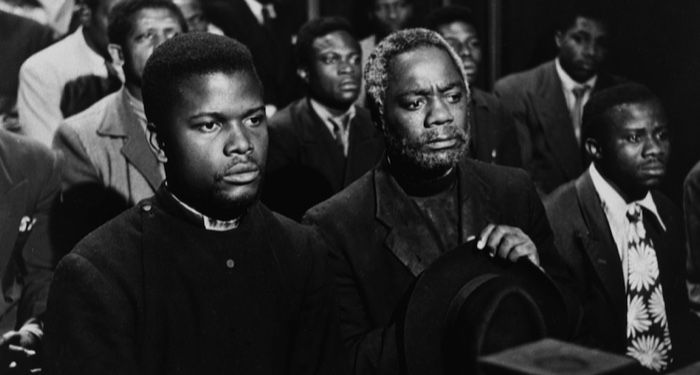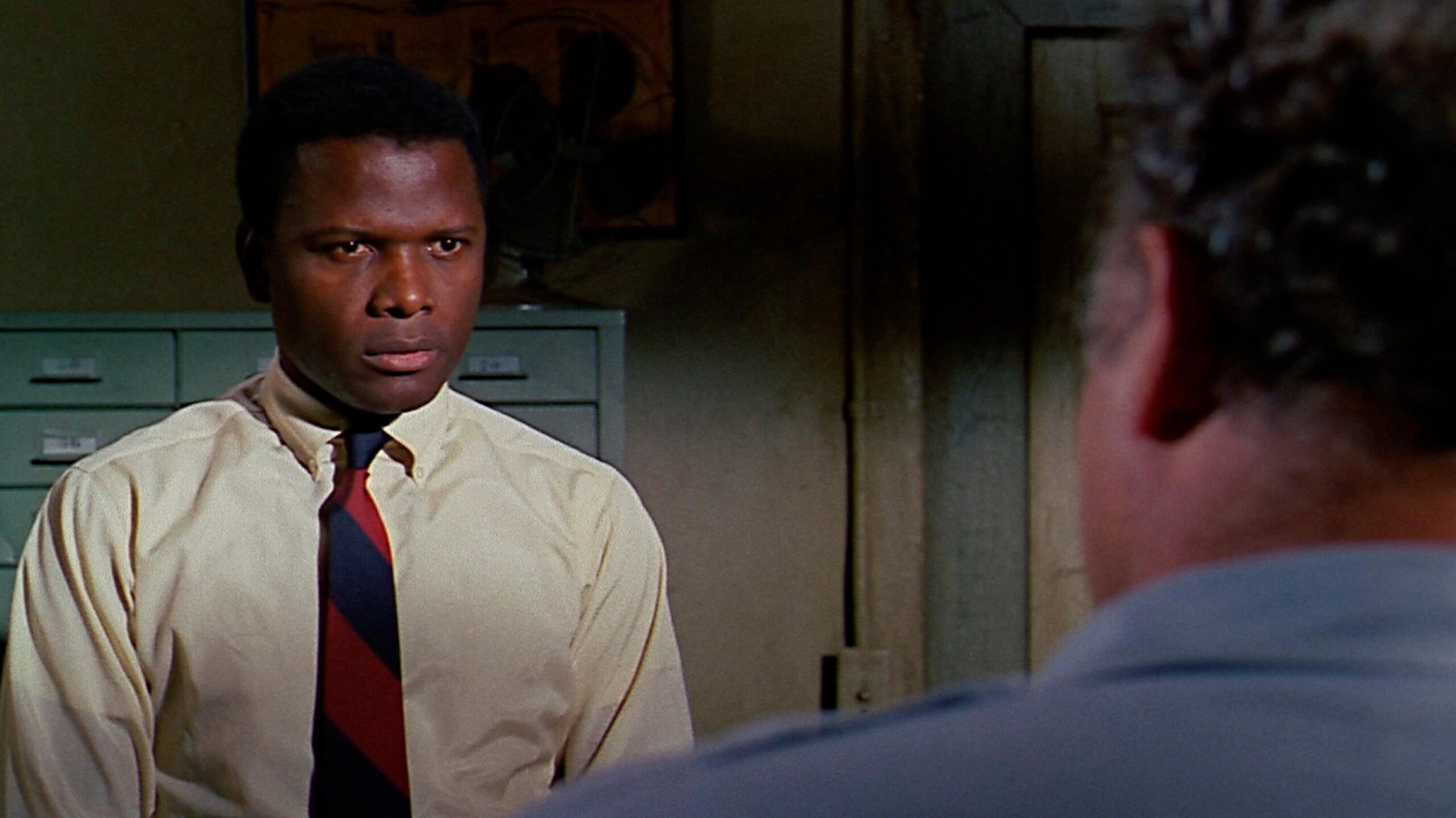After a year in the Army — he lied about his age to get in and faked a psychological illness to get out — he once again auditioned for the American Negro Theater, this time getting in. However, audiences struggled with his Bahamian accent and were displeased that he couldn’t sing, so he spent several months training his voice. He was given the leading role in a Broadway production of Lysistrata, which ran for four days, and then became an understudy for Anna Lucasta, a play by Philip Yordan that reimagined Eugene O’Neill’s Anna Christie. By the late 1950s Poitier was juggling offers for the stage and motion pictures, and in one such decision he ended up starring in The Defiant Ones opposite Tony Curtis, as men on a chain gang. Another original screenplay, that performance earned him a nomination for an Academy Award for Best Actor, the first ever for a Black actor. He then returned to the stage in the first Broadway production of A Raisin in the Sun by Lorraine Hansberry, winning a Tony Award. He then starred in the film adaptation of Porgy and Bess as well as the film adaptation of A Raisin in the Sun, earning Golden Globe Awards for both. Then, in 1963, he starred in Lilies of the Field, based on the book Lilies of the Field by William Edmund Barrett, and that performance won the Academy Award, the first time it was awarded to a Black actor. In the 1970s, Poitier expanded his talents to directing, beginning with Buck and the Preacher, starring himself as Buck and Harry Belafonte as the Preacher. The two were lifelong friends who met in the American Negro Theater and were active in the Civil Rights Movement. The film also reunited him with his Broadway costar Ruby Dee. He produced the movie with Belafonte, and they originally hired white director Joseph Sargent, but fired him a few days into filming due to his lack of understanding of the film’s racial themes. Poitier continued to act and direct, and he wrote three autobiographies: This Life in 1980, The Measure of a Man in 2000, and Life Beyond Measure in 2008. He was also the subject of two biographies: 2004’s Sidney Poitier: Man, Actor, Icon by Aram Goudsouzian and the 2020 book Sidney Poitier Black and White by Philip Powers. Poitier also wrote one novel, 2013’s Montaro Caine. Poitier has received many awards and acknowledgements for his accomplishments, including the Oscar, Tony, Golden Globe, and BFA. He was given Kennedy Center Honors in 1995, received the Medal of Freedom from President Barack Obama, won an AFI Lifetime Achievement Award, and was made an honorary Knight Commander in the OBE by Queen Elizabeth. The lobby of the Academy Museum in Los Angeles is named for him, and a he has a star on the Hollywood Walk of Fame as well as an honorary Doctorate of Fine Arts from the University of Miami. A documentary chronicling Sidney Poitier’s vast contributions to the world of cinema and civil rights called Sidney will be on Apple TV+ on September 22, 2022.

